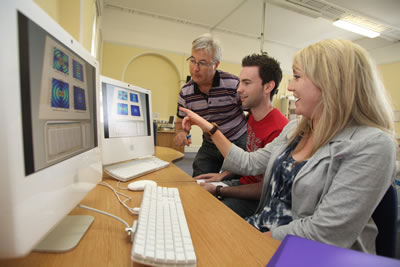-
Courses

Courses
Choosing a course is one of the most important decisions you'll ever make! View our courses and see what our students and lecturers have to say about the courses you are interested in at the links below.
-
University Life

University Life
Each year more than 4,000 choose University of Galway as their University of choice. Find out what life at University of Galway is all about here.
-
About University of Galway

About University of Galway
Since 1845, University of Galway has been sharing the highest quality teaching and research with Ireland and the world. Find out what makes our University so special – from our distinguished history to the latest news and campus developments.
-
Colleges & Schools

Colleges & Schools
University of Galway has earned international recognition as a research-led university with a commitment to top quality teaching across a range of key areas of expertise.
-
Research & Innovation

Research & Innovation
University of Galway’s vibrant research community take on some of the most pressing challenges of our times.
-
Business & Industry

Guiding Breakthrough Research at University of Galway
We explore and facilitate commercial opportunities for the research community at University of Galway, as well as facilitating industry partnership.
-
Alumni & Friends

Alumni & Friends
There are 128,000 University of Galway alumni worldwide. Stay connected to your alumni community! Join our social networks and update your details online.
-
Community Engagement

Community Engagement
At University of Galway, we believe that the best learning takes place when you apply what you learn in a real world context. That's why many of our courses include work placements or community projects.
Communication Skills
Communication, Teamwork & Presentations
Good communication skills are really important for study, work, and life. During your time at University of Galway, you will need to communicate with lots of people about lots of things. You will be expected to work with other students in teams, and to create and deliver presentations. You will need to contact your lecturers and tutors from time to time. You may be involved in work-based learning, volunteering, or with student societies and clubs - all of which will require communication.
Good communication is a two-way process, involving at least one sender, and at least one receiver, of a message. For communication to take place, the message needs to be both received and understood.
When people talk about ‘communication skills’, they are usually referring to a person’s level of competence in one or more of the following three main categories of human communication:
Oral Communication: Face-to-face meetings and negotiations, telephone or videoconferencing calls (including voicemails), podcasting or broadcasting, interviews, presentations; the art of listening as well as speaking
Written Communication: Essays, journals, reports, e-mails, letters, notes and minutes, texts and other instant messaging, social media, presentation slides; the art of reading as well as writing.
Non Verbal Communication: Body language (facial expressions, eye contact, posture, gestures), tone and pitch of voice, and appearance.
If you'll be interviewing for a role anytime soon, check out these interview skills tips from the Career Development Centre. Registered students also have access to Big Interview - this AI tool records you doing a mock interview and gives feedback.
Supported by the Student Project Fund
Downloads
-

Top tips - oral communication skills DOC (125 KB)
-

Top tips - written communication skills PDF (125 KB)
-

Top tips - non-verbal communication skills DOC (116 KB)
-

Guide to emailing University of Galway staff DOC (131 KB)
-

Guide to communicating with your peers on social media DOC (121KB)
-

How to explain absence from university Word (341)
-

How to explain that you are experiencing academic difficulties Word (399 KB)
-

How to request a meeting DOC (399 KB)
-

How to request more time for an assignment Word (342 KB)
-

What to do when a team isn't working DOC (117 KB)
-

Checklist for planning a presentation PDF (120 KB)
-

Checklist for creating a presentation slideshow PDF (133 KB)
-

Checklist for delivering a presentation PDF (121 KB)


















